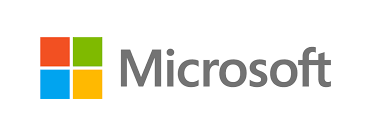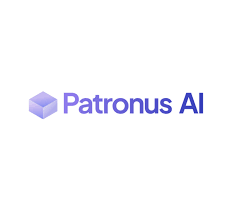In a bold move to advance its technological frontier, Microsoft has unveiled a new category of personal computers, Copilot+ PCs, that boast cutting-edge AI capabilities. This development not only solidifies Microsoft’s position in the tech landscape but also sets the stage for head-to-head competition with other industry titans like Alphabet and Apple.
During a recent event at Microsoft’s Redmond, Washington, campus, CEO Satya Nadella introduced these innovative Copilot+ PCs, which are the result of a collaborative effort with top manufacturers including Acer and Asustek Computer. The timing of this launch coincides with Microsoft’s stock nearing all-time highs, fueled by Wall Street’s optimism about the potential earnings boost from AI advancements.
Revolutionizing PC Capabilities with Local AI Processing
The Copilot+ PCs are engineered to handle more AI tasks locally on the device, reducing dependence on cloud data centers. This local processing capability is expected to enhance performance and efficiency. Priced starting at $1,000, these devices will hit the market on June 18. The initial lineup features laptops from Dell Technologies, HP, and Samsung Electronics, along with two models from Microsoft itself.
Technical Innovations and Product Range
At the forefront of this new category is the Surface Laptop, Microsoft’s first Copilot+ device. It features a Qualcomm Snapdragon X series system-on-chip, which includes an AI accelerator capable of delivering up to 45 tera operations per second (TOPS) of computing power. The Surface Laptop is available in 13.5-inch and 15-inch models, with options for up to 64 gigabytes of RAM and 1 terabyte of flash storage.
Complementing the Surface Laptop is the new Copilot+ version of the Surface Pro, a versatile two-in-one PC. You can convert this 10.6-inch tablet into a laptop using a detachable keyboard, known as the Flex Keyboard, which also serves as a wireless connector and stylus charger for the Surface Pro. The Surface Laptop and Surface Pro both use the Snapdragon X processor and offer up to 32 gigabytes of RAM and 1 terabyte of storage. High-end models feature an OLED display, significantly enhancing visual quality.
The Distinctive “Recall” Feature
A standout feature of the Copilot+ series is “Recall,” which logs all user activities—from web browsing to voice chats—and stores this data locally. This creates a searchable history, allowing users to revisit past activities even months later. Yusuf Mehdi, head of consumer marketing at Microsoft, highlighted at the press event that the company anticipates selling 50 million AI PCs in the coming year, emphasizing the compelling nature of AI assistants operating directly on these PCs.
Market Potential and Challenges
Despite a 15% decline in global PC shipments last year, according to Gartner, Microsoft remains optimistic about the market potential for its Copilot+ PCs. Analyst Ben Bajarin from Creative Strategies noted the need to convince consumers that the device experience alone justifies this new category of Copilot+ machines.
Echoing Intel’s 2011 strategy with the “Ultrabook,” Microsoft’s introduction of the “Copilot+” category aims to redefine the slim-form Windows laptop market. Microsoft also announced that GPT-4o, the latest advancement from OpenAI’s ChatGPT, will soon be integrated into Copilot. Additionally, the new Surface Pro tablets and Surface Laptops will feature Qualcomm chips based on Arm Holdings’ designs, using the innovative Prism technology to adapt software originally designed for Intel and AMD processors for Arm-based systems.
Showcasing Superior Performance
In a recent demonstration, Microsoft showcased the superior performance of its new devices running Adobe photo editing software, outperforming an Apple device. This comes just weeks after Apple introduced a new AI-focused chip expected to enhance future laptops.
Navigating the Competitive Landscape
Microsoft’s aggressive push into AI-enhanced PCs positions it as a leader in integrating the latest AI trends into consumer products. This strategic initiative, supported by its partnership with OpenAI, aims to secure a leadership position in the competitive AI industry, challenging rivals like Alphabet. Recently, both OpenAI and Alphabet’s Google introduced new AI technologies that support real-time, voice-responsive interactions, establishing new benchmarks for AI voice assistants. Meanwhile, Windows PC manufacturers are facing increased pressure from Apple, whose custom Arm-based chips have set new standards in battery life and performance.
The Future of AI-Integrated PCs
As the tech landscape continues to evolve, Microsoft’s Copilot+ PCs represent a significant step forward in the integration of AI capabilities into everyday computing. With the promise of enhanced performance, local AI processing, and innovative features like “Recall,” these new devices are set to redefine the expectations for personal computers in the AI era. The rollout of these advanced PCs marks a pivotal moment for Microsoft, as it continues to lead the charge in AI innovation and redefine the future of personal computing.


















